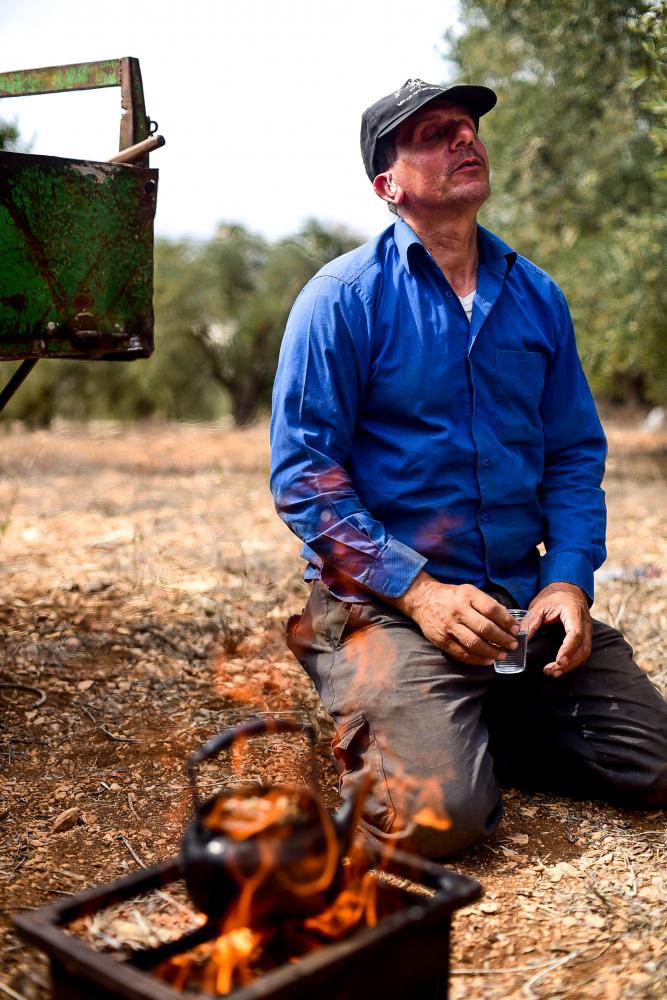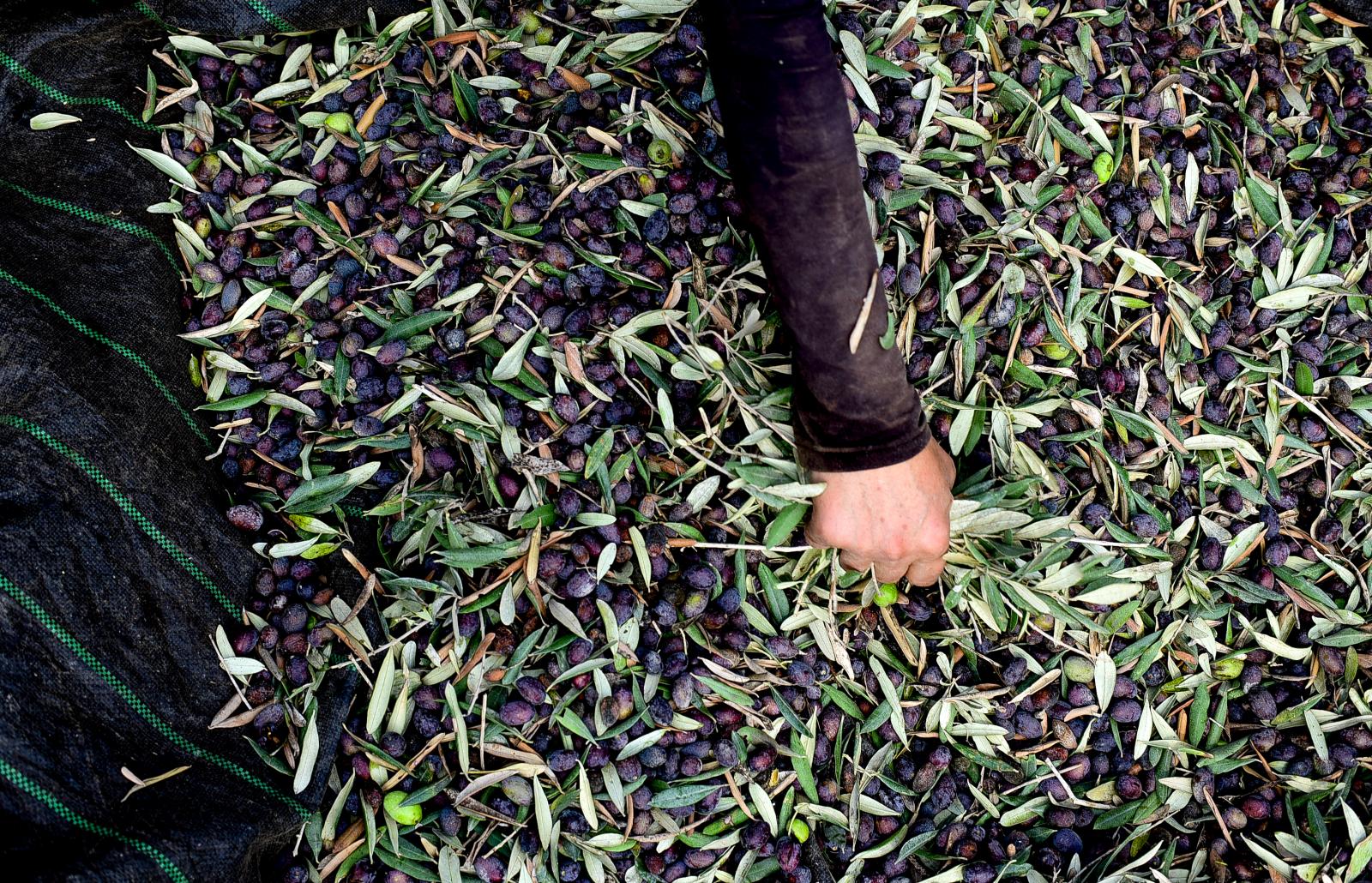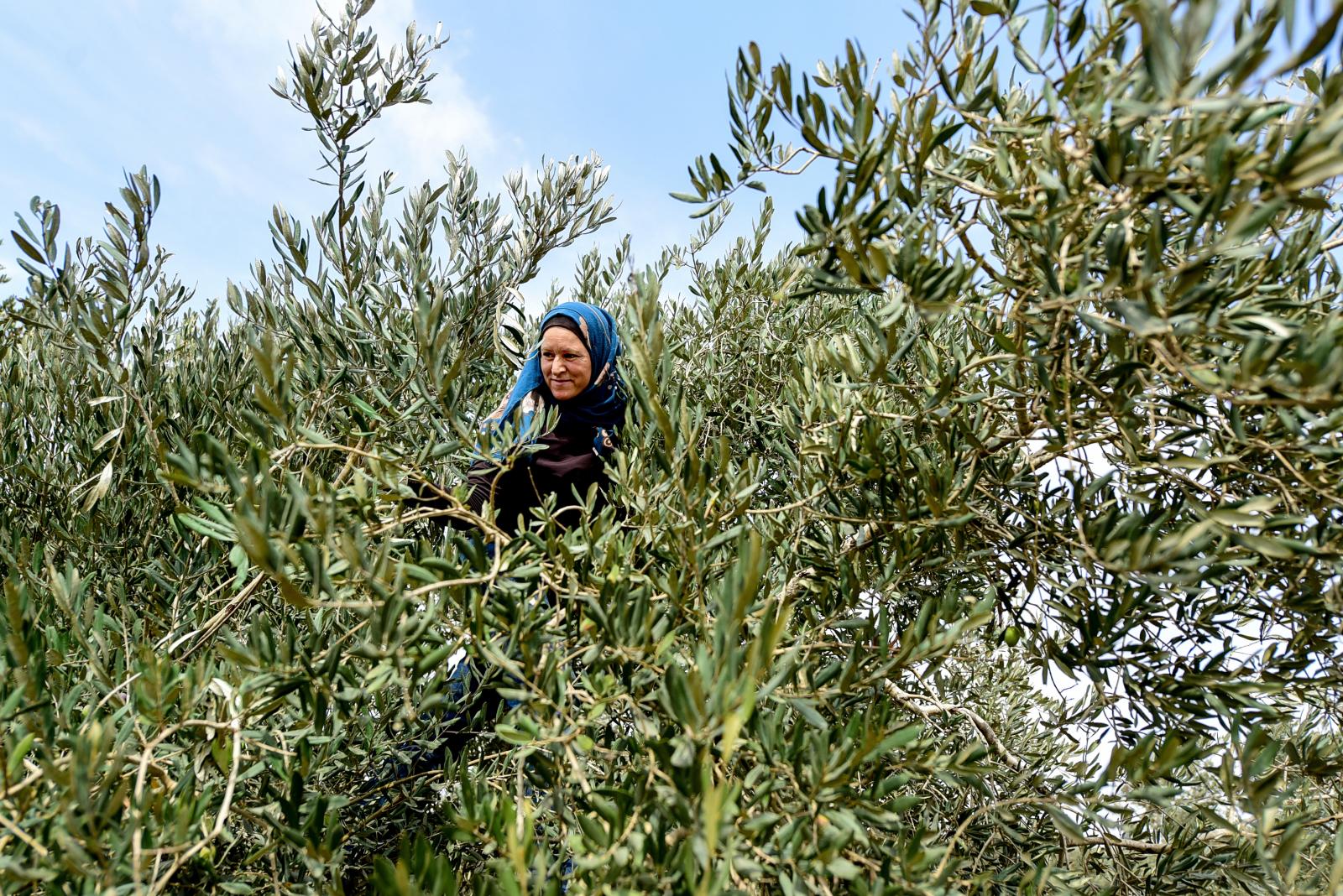Olives, an international sign of peace, have become emblematic of the Israeli-Palestinian conflict, as Palestinian farmers barred from their ancestral olive groves have watched for decades as settlers burn their groves to make way for Israeli developments. The UN reports that thousands of farmers are kept from their groves for "security reasons"or an "inability to prove connection to the land." Because permits are granted infrequently, many farmers can only access their groves during limited hours, if they are allowed to harvest at all. Others, particularly those with groves close to the green line or other high-security areas, may be monitored by Israeli Defence Armed Forces while they harvest. A 2019 OCHA report found that 2018 saw the lowest approval rate for barrier permits on record, jumping from a rejection rate of 54 percent in 2016 and 2017 to a staggering 72 percent. This is due in part to an increase in bureaucratic regulations in the name of security, requiring “valid ownership or land taxation documents” to prove a family’s connection to the land. Many farmers refuse to apply for permits on principle; others have had their land stolen after displacement forced them to abandon their groves for their lives.
Although the role of olive trees in the Israeli-Palestinian conflict is essential for understanding this context, it had nothing to do with my first desire to join a family harvesting olives. Thousands of years before Judaism, Christianity, or Islam came to the Levant, the oldest living olive tree was born - 5,000 years ago in what is now Bethlehem. The tree is only about 20 meters from the barrier divide, but it has lasted millennia longer. The traditional collection method of olives hasn’t changed much in the last thousands of years either, and strong family bonds are essential to the success of each harvest. I want to continue photographing traditions like this that rely on ancient, family knowledge - and will continue to outlast us all.


















